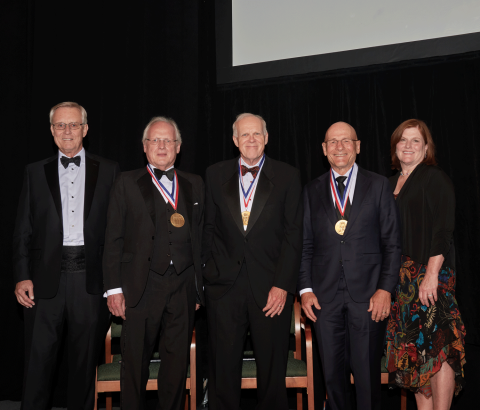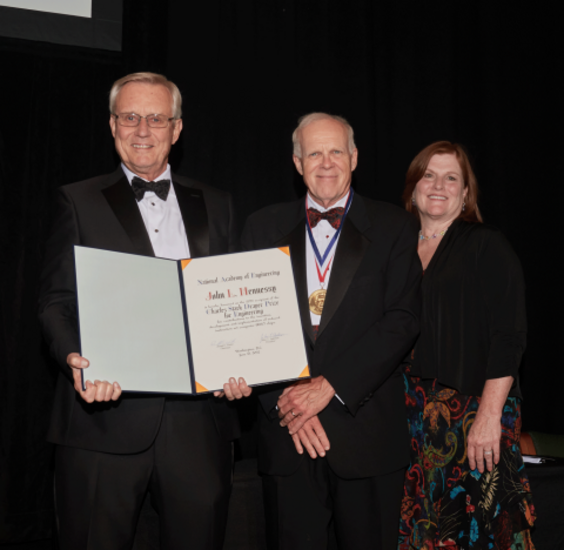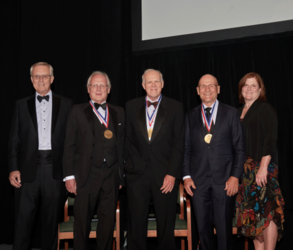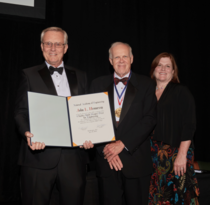2022 Draper Prize Recipients Honored for Contributions to the Invention of RISC Chips
CAMBRIDGE, MA—The National Academy of Engineering (NAE) honored David A. Patterson, John L. Hennessy, Stephen B. Furber and Sophie M. Wilson with the Charles Stark Draper Prize, the nation’s top engineering honor, for their pioneering contributions to the field of microprocessors, during a June 13 ceremony.
The NAE says that Hennessy, Patterson, Furber and Wilson earned the award “for contributions to the invention, development and implementation of reduced instruction set computer (RISC) chips.”
Both Patterson, from Stanford University, and Hennessy, from the University of California, Berkeley, championed RISC as more efficient than competing computer vocabularies, such as complex instruction set computers (CISC).
Inspired by the work of Hennessy and Patterson, Furber and Wilson built a new microprocessor for the Acorn personal computer and created an instruction set called the Acorn RISC Machine, or ARM. When the ARM1 debuted in 1985 as the first commercial RISC processor, it was faster than any microprocessor on the market.
Presenting the Draper Prize with NAE President John L. Anderson was Tara S. Clark, acting president and CEO, and vice president of Operations and Commercial Programs, at Draper.
“On behalf of Draper, I warmly congratulate the recipients for their contributions to the invention, development and implementation of RISC chips,” Clark said. “The advancements to all humanity enabled by their contributions are impossible to quantify.”
The Draper Prize was established by the NAE in 1988 at the request of Draper, which endowed the prize to honor the memory of “Doc” Draper, the father of inertial navigation, and to increase public understanding of the contributions of engineering and technology. The first prize was presented in 1990.
Recognized as one of the world’s pre-eminent awards for engineering achievement, the Charles Stark Draper Prize for Engineering honors an engineer whose accomplishment has significantly impacted society by improving the quality of life, providing the ability to live freely and comfortably and permitting the access to information. This year’s recipients will split the $500,000 cash award.
Released July 14, 2022













